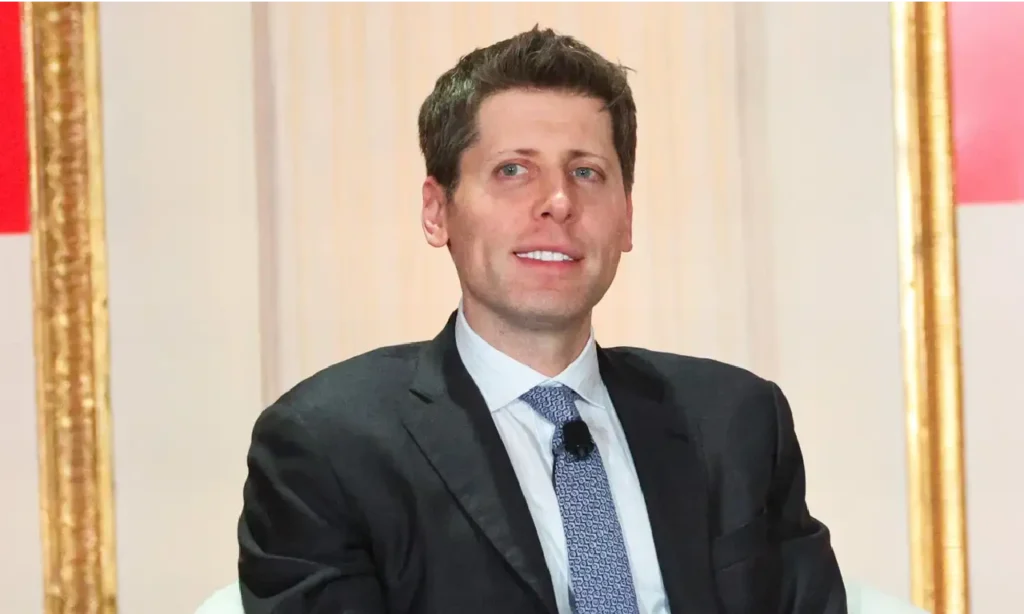Introduction
In the evolving landscape of artificial intelligence (AI), ethics has become a central focal point, especially when it comes to the use of copyrighted material and the rights of individuals whose likenesses are replicated without consent. Recently, OpenAI, a prominent figure in AI research, found itself at the heart of a controversy involving Hollywood actress Scarlett Johansson. “The Scarlett Johansson Dispute Erodes Public Trust In OpenAI” The dispute, revolving around the alleged unauthorized use of Johansson’s likeness in an AI chatbot, has stirred debates about transparency, accountability, and the ethical responsibilities of AI developers.
The Genesis of the Dispute
The controversy erupted when OpenAI released an update to its AI chatbot, ChatGPT-4o, featuring a female voice strikingly reminiscent of Johansson’s portrayal in the movie “Her.” The voice, which occasionally exhibited flirtatious undertones, raised eyebrows among users who drew immediate comparisons to Johansson’s iconic performance.
Johansson’s involvement in the dispute escalated when she publicly stated that OpenAI had approached her to provide the voice for the chatbot. However, upon her refusal, the company allegedly resorted to hiring a soundalike without her consent. This revelation shocked Johansson, leading her to express feelings of anger and disbelief at OpenAI’s actions.
The Fallout: Public Backlash and Trust Deficit
The backlash against OpenAI was swift and severe. Social media platforms became battlegrounds where users condemned the company’s alleged ethical transgressions. Accusations of unethical behavior were hurled at OpenAI CEO Sam Altman, who found himself at the center of public ire.
The incident highlighted a broader pattern of ethical lapses within OpenAI, further eroding public trust in the organization. Critics pointed to past instances where OpenAI had skirted ethical boundaries, such as using copyrighted material without proper permissions. This pattern of behavior raised questions about OpenAI’s commitment to ethical conduct and its respect for intellectual property rights.
The Ethical Quandary: Balancing Innovation and Responsibility
The dispute with Scarlett Johansson underscores the complex ethical dilemmas facing AI developers. On one hand, the rapid advancement of AI technology promises groundbreaking innovations that can revolutionize various industries. On the other hand, this progress must be tempered by ethical considerations to ensure that it is achieved responsibly and without infringing on the rights of individuals.
OpenAI’s reliance on copyrighted material to train its AI models represents a contentious issue that has divided opinion within the tech community. While some argue that leveraging copyrighted material is essential for advancing AI research, others contend that it poses ethical risks and undermines the rights of content creators.
Looking Ahead: Rebuilding Trust and Upholding Ethical Standards
In the aftermath of the Scarlett Johansson dispute, OpenAI faces the daunting task of rebuilding public trust and reaffirming its commitment to ethical conduct. This necessitates a transparent and accountable approach to AI development, one that prioritizes respect for intellectual property rights and the consent of individuals whose data is used in AI training.
Moreover, the controversy serves as a wake-up call for the broader AI community to establish clear ethical guidelines and regulations governing the use of copyrighted material and the replication of individuals’ likenesses in AI-generated content. By fostering a culture of responsible innovation and ethical integrity, AI developers can mitigate the risk of future disputes and earn the trust of the public.
Conclusion
The Scarlett Johansson Dispute Erodes Public Trust In OpenAI: AI engineers should take note of the ethical problems that can occur when pursuing technical advancement, as demonstrated by the Scarlett Johansson controversy. Organizations like OpenAI must place a high priority on ethical behavior and accountability as the AI landscape changes if they are to effectively traverse these difficulties. As AI engineers define the future of AI technology, they can only gain the faith and confidence of society by adhering to the highest standards of ethical integrity.




